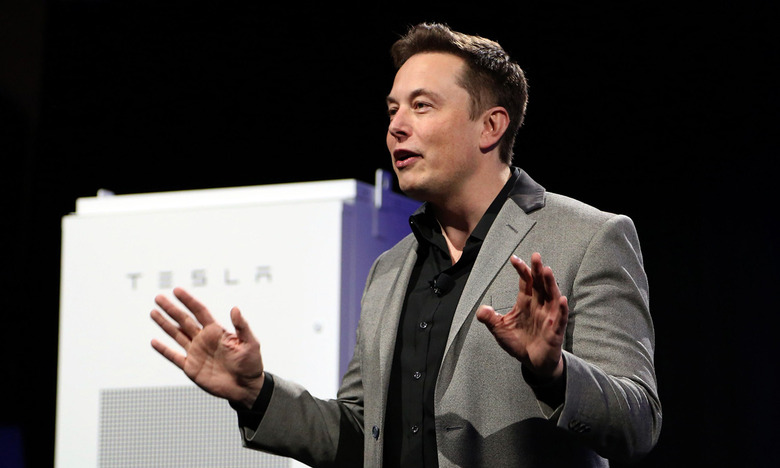Elon Musk's Plan To Take Tesla Private Could Face Another Obstacle: Trump
There is nothing remotely normal about Elon Musk's bid, revealed last week on Twitter, to take Tesla private. He's already being sued by investors and reportedly investigated by the SEC thanks to the highly weird ways that information about this merger have trickled out, and his supposed funding from the Saudi government seems far from "secured" at the moment.
But as Bloomberg points out, even if everything else plays out per Musk's plan, there's going to be another sticking point: the Committee on Foreign Investment in the US, a government panel that reviews takeovers of American companies by foreign entities through a national security lens. The Trump administration already torpedoed one big takeover of a US tech company in the last year, and there's everything to suggest that the Saudi government taking over a major US tech company would raise some eyebrows too.
Bloomberg explains just how much a Saudi-led privatization — even if that didn't involve the Saudi government acquiring a majority stake in Tesla — would fall under CFIUS's purview:
While the structure of any investment is unknown, CFIUS has authority in some circumstances to examine foreign investments in U.S. companies even when the buyer isn't acquiring a majority stake. The new law enacted by Trump Monday broadens the panel's jurisdiction to examine a wider universe of investments.
The law also establishes mandatory reviews of deals involving "critical technology" when a foreign government has a "substantial interest" in the investor making the acquisition. That provision, which was seen largely directed at China, doesn't take immediate effect, according to lawyers.
The Trump administration has already signaled that it views the strength of the auto industry as a matter of national security. Regardless of what you think of Tesla, it's certainly the only American automaker that has shown signs of a breakout in the last few years. With Tesla already investing in an overseas factory in partnership with China, it's easy to see the administration intervening to keep Tesla in American hands — no matter how skeptical those hands might be.
